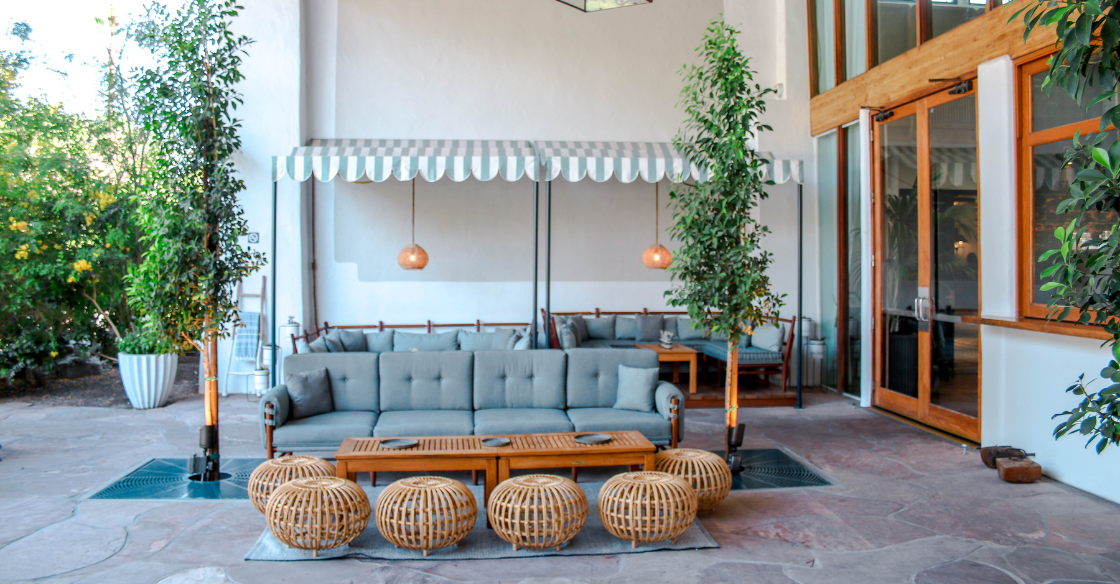Small hotel properties offer exceptional benefits for group events. However, they also present some unique challenges. Explore how boutique hotels can leverage current trends to generate more sales leads from event planners in the US.
Five Key Ways Small Hotel Properties Can Increase Group Business Opportunities
Our 2024 Meeting Planner Survey reveals significant trends that small hotels can use to their advantage.
1. Take advantage of the rise of small meetings.
Smaller meetings are dominating the industry. Planners expect meeting size to grow somewhat in the next year, but not dramatically. That means about 70% of meetings will include 200 or fewer attendees. Take advantage of this trend to offer a personalized experience for smaller groups at your property.
Consider aligning your boutique hotel with larger properties to grow business for both. When partner properties don’t have the capacity for a small event, ask them to send the leads your way. A small venue could be a great alternative, offering a more intimate experience for attendees.
With more meetings under 200 people, smaller properties are also more likely to find RFPs that are a good fit. To understand capacity requirements, save time by looking at their event history and attendee count.
As your sales team reviews RFPs, try to determine their chain scale preferences. Chain scale alignment is top of mind for meeting planners trying to save costs. They are even willing to move markets to maintain the same level of service.
2. Offer prices or amenities that larger hotels can’t match.
Nearly half of all meeting planners are concerned about the cost of holding meetings, according to the 2024 survey. Small hotels may be able to offer flexibility on pricing and packages compared to larger properties with more overhead.
If price adjustments aren’t an option, give them more for their money. This could include unique dining experiences, a spa credit per person, or destination features that appeal to groups.

3. Focus on boutique hotel benefits
You can shift groups from larger markets to your property based on the experiences your attendees will have. Planners are interested in unique experiences and spaces that you can offer indoors or outdoors.
With smaller groups, local restaurant partnerships can be a good option. You can offer options for dining at the restaurant or bring in the chef and create a chef’s table experience for your attendees.
4. Target regional sub-markets to shift share to your property
Most larger markets include several sub-markets. These regions, often suburbs or areas within a large city, can appeal to certain groups. For example, Arlington, Virginia, is a submarket of Washington, D.C.. Sub-markets have distinct industry demands, booking trends, and competition, which could differ from those of the larger area.
You can use technology to find accounts booking in your market or similar markets. This can help you attract more potential customers to your hotel.
By using tools like Knowland, you can target your efforts towards industries that are thriving in specific sub-markets. This information can help you focus your sales and marketing efforts more effectively.
Related Read: 6 Ways Hotel Sales Teams Can Increase Revenue in 2024
5. Utilize community spaces for meetings
Hotels with small meeting rooms can offer common spaces to groups needing a little extra space. Attendees find that it’s nice to get out of the boardroom and experience the hotel.
Depending on seasonality, you can hold events in restaurant or lounge spaces, poolside areas, or courtyards.
You may need to bring AV equipment into these areas. Demonstrate how you can make that work so your group is confident in your ability to host meetings in alternative spaces.
Secondary Tier Markets are Important to Meeting Planners, Too
As the price of conducting live meetings increases, planners are more willing to relocate events to book their preferred chain scale. Even outside a major city, boutique hotels have many opportunities to attract small groups to their venue.
Challenges You May Face with Groups at a Boutique Hotel
- Hotel brand preferences: You may run into groups that prefer a specific hotel brand. As a boutique hotel, you may not be aligned with a major brand to be included in those RFPs. That’s why data and prospecting are so essential. You can find groups that have used more than one hotel brand and will fit nicely in your hotel space.
- Keeping up with AV technology: Technology advances quickly in AV, making it hard for small hotels to keep up. Additionally, planners are concerned about the rising costs in this area. Be sure you have an AV company you can bring in if your AV isn’t as up-to-date as it could be so that you can give your customers what they need.
- Having enough hotel rooms for the group: Don’t restrict group events to days when you have guest rooms available. If you have high occupancy, look for groups locally that need only a few or no hotel rooms for their event. Single-day corporate events, team-building events, and catered dinners drive ancillary revenue.
Ready to Make Sales Soar for Your Boutique Hotel?
Rather than hoping sporadic RFPs will work for your hotel, your boutique hotel marketing plan may require more prospecting. Look at actual group event data based on meeting space used and hotel rooms booked to find groups that would be a good fit for you. Knowland can give you this up-to-date information for your market, sub-market, and competing markets.



